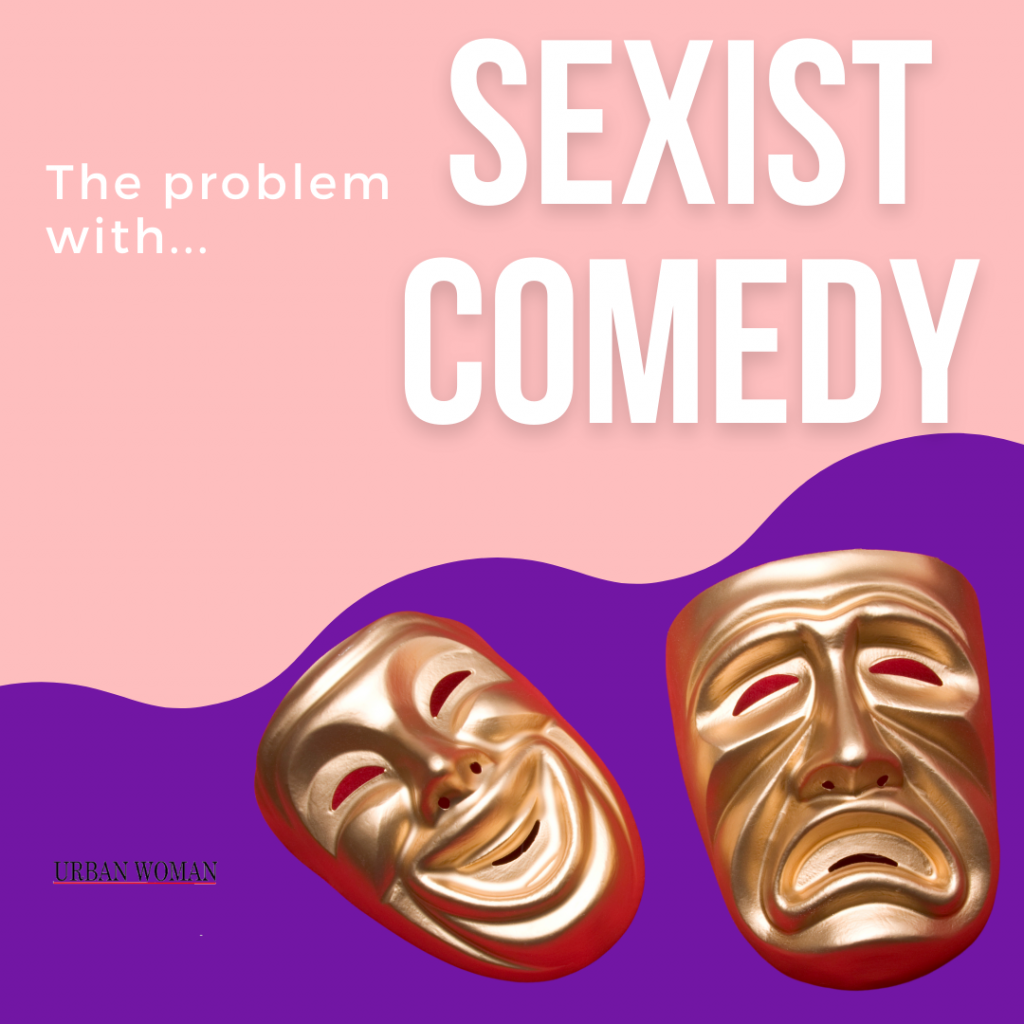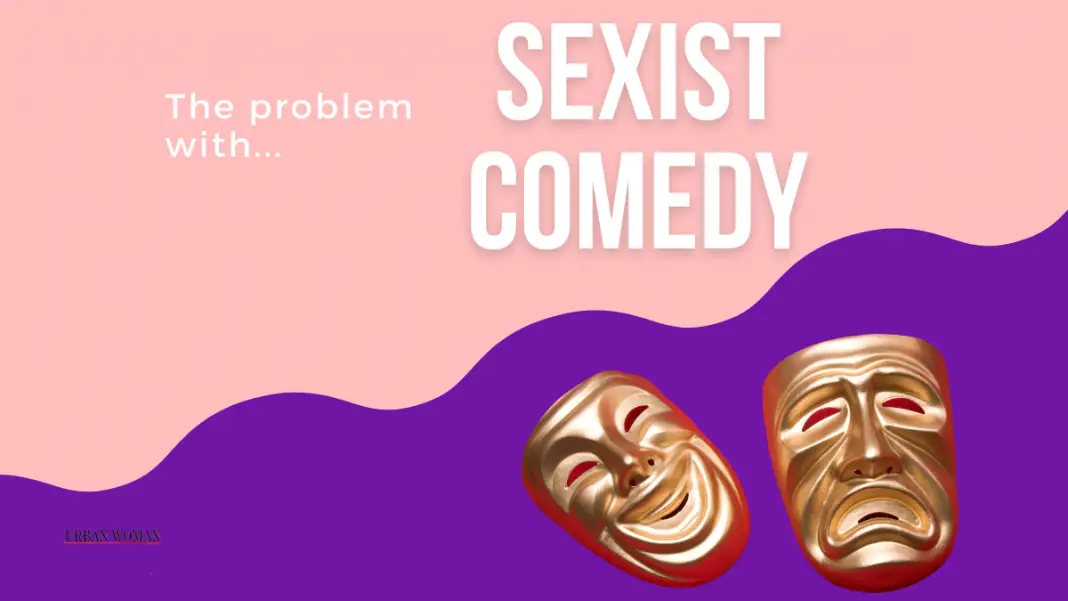Sexist comedy trivializes issues that women face. Example of such issues includes rape, sexual assault, sexual harassment etc. Find out why it needs to stop, and why those who enjoy this type of content need to be called out as well as the comedians who crack these jokes.

Last year, a popular Nigerian Comedian released a skit that sparked a lot of controversy on the internet. In the skit, his neighbour, a woman, comes over to borrow something from him. She is fully dressed but as he stares at her, he undresses her in his mind eye and she starts to appear very seductive to him. As she enters his house to collect the item, with a mischievous grin, he follows her into the house, locks the door, and pockets the key.
While many found the skit unproblematic, many others have since called out the comedian for promoting the rape culture. Not only does his comedy trivialize the issue of rape (as many women have been victims of assault in very similar situations), it also sends the message that over-sexualisation of women and possible assault is perfectly normal.
Comedic pieces like this are very popular on the internet and sometimes even on television! Listeners and consumers of this type of content are faced with two options; call out the sexism or enjoy the comedy and more often than not, people choose the latter. Interestingly, studies have revealed that there is a correlation between enjoying sexist jokes and exhibiting sexist traits. For this reason, we have learned that addressing the people who enjoy these jokes is just as important as addressing the people who tell them.
Good intentions are not enough and no matter how good a comic’s intentions might be, there are people with bad intentions who would readily arm themselves with your sexist/racist/homophobic joke as a validation for their actions.
CHISOM ANASTASIA NWAEZUOKE
To be honest, I get it. I understand not wanting to be the party pooper who can’t take a joke. If I’m being honest, I hate being the party pooper but seeing as sexism directly threatens my life, I’ve settled into my role as the party pooper and you should too.
One major problem with sexist comedy is that it trivializes important issues. For example, a comedy skit making fun of a man for not being ‘masculine enough’ by calling him a homophobic slur makes homophobia a trivial topic and reduces its devastating impact for cheap laughs.
Millions of people all over the world already live in fear of their safety due to their sexuality, what they do not need is a comedian making jokes about their lives. Good intentions are not enough and no matter how good a comic’s intentions might be, there are people with bad intentions who would readily arm themselves with your sexist/racist/homophobic joke as a validation for their actions. It stops being a joke when it puts a person’s life in danger.
Another problem with sexist comedy is that it derails important conversations. After coming under fire for the skit described above, said comedian released a new skit one month later. In this new skit, he is seen working on his laptop by 11 pm when a female friend calls and asks if she can spend the night and he replies in the affirmative.
She comes overdressed in a skimpy outfit and asks for a T-shirt to sleep in. She changes with her back turned to him, comes over to the bed and wishes him goodnight before turning her back to him and going to sleep. Throughout all this, the man is portrayed to be sexually aroused by all her actions and he even comments at some point that she is not putting on a bra. A few moments later, the man (comedian) is seen in the kitchen in a soliloquy. He questions whether or not she was giving him the green light to make sexual advances and the scene concludes after he asks the question “Is this consent?”.
Now, it’s very easy to deduce that consent was not given but given the elaborate and supposedly comical depiction of the ‘female friend’, the internet went crazy with ‘whataboutisms’. That is what sexist comedy does: shift the focus from important discuss to unnecessary debates about issues that should never be up for debate.
We could be teaching kids about consent and providing support for survivors of sexual abuse but now we’re distracted educating grown men that not wearing a bra is not the same as giving consent for sexual advances. You might be wondering why said comedian still has a relevant career and it hurts to type that despite all this, he still has a large and impressive audience who ‘find him funny‘.
Calling out the people who find sexist content funny is just as important as calling out the comedian. Remember my role as the party pooper? Well, here’s how I play it to perfection.
First, whether online or in person, I immediately make it known that there was nothing funny about the content. It’s more fun in person because they have the privilege of staring at my rock hard emotionless face and if I’m feeling ambitious, I’ll raise an eyebrow and ask clearly “was that a joke?”.
The second step is to call out the vice in the content. Usually, this sounds like “That’s misogynist” or “That’s homophobic”; there’s obviously no space for flowery words. The third step is to explain why said content is misogynist/homophobic/racist etc. As before, there’s no space for flowery words and my explanations are usually as explicit and direct as possible. “That is misogynist because it perpetuates the harmful notion that a married woman cannot be raped”. The final step, which is a personal favourite, is a call to action. Depending on my mood, it may be delivered with kindness or sarcasm.
A simple “Do better” or “You should know better” does the trick. After all the steps are completed, prepare to be on the receiving end of people who will wonder why you just “can’t take a joke”. To this, feel free to reply that you can take a joke but you just haven’t seen one.
Read Also: Mariam Adedoyin-Olowe’s Story Of An Explosion of Purpose And Its Resulting Success

Chisom Anastasia Nwaezuoke is a physiotherapist, writer, public speaker and yogi. She is also a sexual health and reproductive rights advocate and volunteers for HandsOff Initiative.

